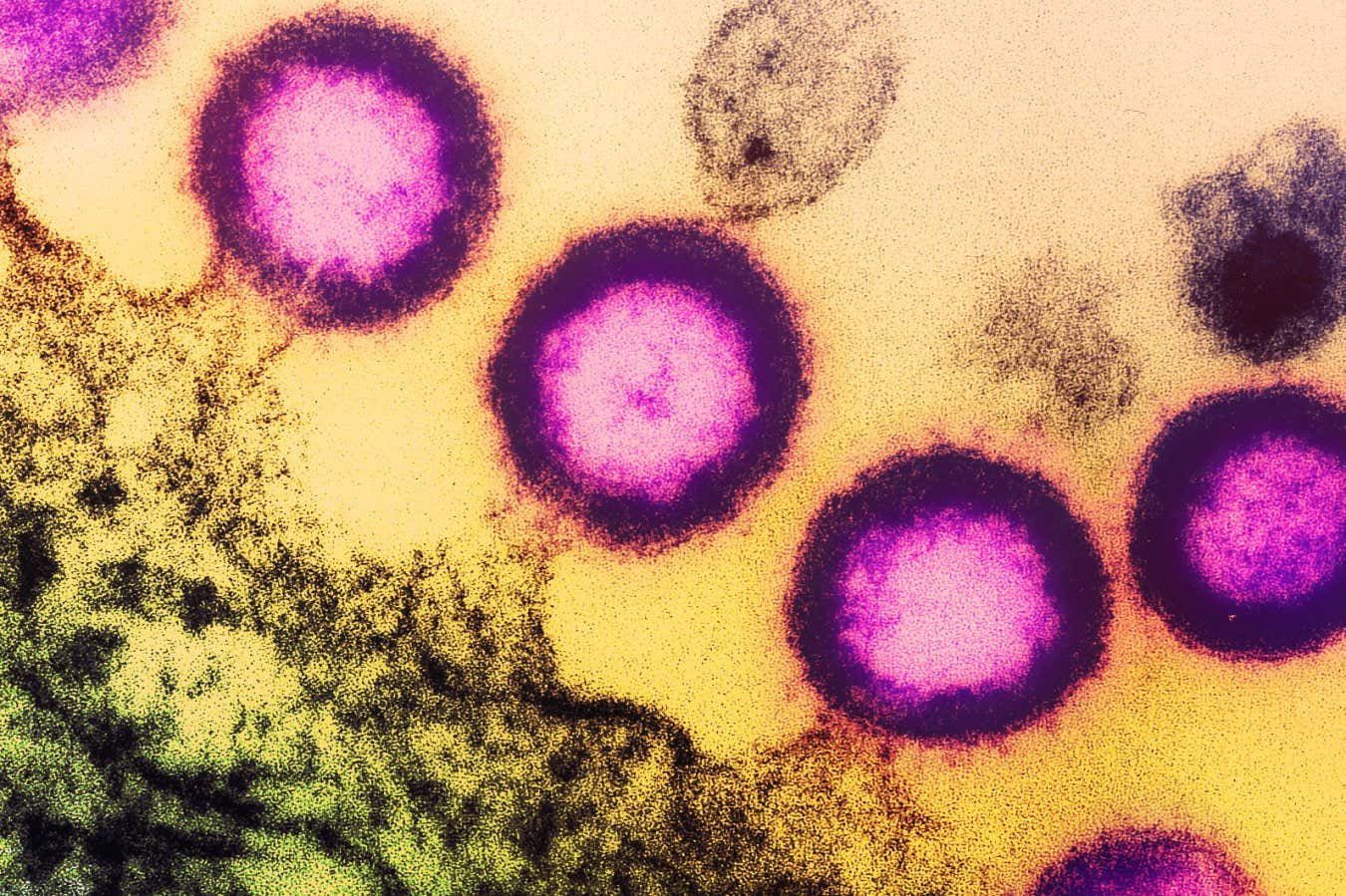A woman is in remission for HIV after she received HIV-resistant stem cells from umbilical cord blood to treat her leukaemia
By Jacklin Kwan
16 March 2023
A transmission electron micrograph of HIV virus particles (pink) replicating from the plasma membrane of an infected immune cell
NIAID
A transplant of stem cells from the umbilical cord has resulted in a mixed-race woman going into remission for HIV for the first time.
The woman, known as the New York patient, has been clear of detectable HIV since 2017, after she received HIV-resistant stem cells that had been harvested from umbilical cord blood to treat her leukaemia. Stem cells are produced by bone marrow and can turn into different types of blood cells.
Several people have previously gone into remission from HIV after receiving stem cells from adult donors who carry two copies of a naturally occurring mutation of the CCR5 gene. This delta 32 mutation prevents the virus from entering and infecting healthy cells.
Advertisement
With any stem cell transplant, recipients can only receive donations from people with matching tissue types to reduce the risk that their immune system will attack the transplanted tissue.
Since tissue types are inherited, a person’s ethnicity influences their ability to find a match. Having two copies of the CCR5 mutation is rare, existing in only around 1 per cent of people of northern European ancestry and being even rarer in other populations.
To overcome the lack of suitable adult donors, doctors carried out a study where they infused umbilical cord blood into the New York patient, who identifies as mixed race.
